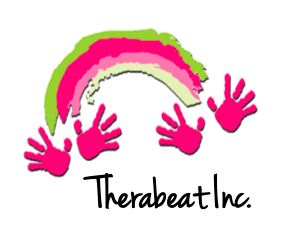Transitional academies are community-based educational programs, usually provided in school systems, for young adults and teens with cognitive disabilities. These programs help students who have completed their academic courses make a smooth transition into the community. The academies provide training for a wide variety of student needs from activities of daily living and basic social skills to specialized vocational training and job placement. Music therapy services can offer holistic support of transitional academies through evidence-based intervention programs.
Gooding (2011) reports utilizing programs that teach using evidenced-based programs and programs that provide “instruction, rehearsal and reinforcement” , such as music therapy, have a higher success rate (p. 441). Music provides a non-threatening, yet structured program to teach social skills for daily living because music is fundamentally social. Music promotes “interpersonal skills, teamwork, and co-operation” because it is created to be shared with others (Gooding, 2011, p. 442). Evidenced-based music therapy interventions, such as social story songs, allow for social skills rehearsal. Interventions focusing on interpreting or analyzing social situations (i.e. emotions, conversation cues) build social competence and give students not only the appropriate skills, but the motivation to use them in a given situation (Gooding, 2011, p. 441).
Music Therapy services target many fundamental areas of social competence. However, an important fundamental to note is focus of attention as many persons with cognitive disabilities have difficulty with attention control (Gooding, 2011, p.442 & Pasiali, LaGasse, and Penn, 2014, p. 335). Results from a study by Pasiali, LaGasse, and Penn (2014) showed that music stimuli provided motivation for children to focus (p. 336). The “structure and predictability” provided by chants, rhymes, and songs “facilitates motivation to build attention skills” in addition to social skills, both components needed for joint attention (Pasiali, LaGasse, and Penn, 2014, p. 338). This study indicated that music interventions supported the development of higher level cognitive and auditory processing, useful skills in finding and using cues in the environment (Pasiali, LaGasse, and Penn, 2014, p. 338). The most important aspect of music therapy in conjunction with transitional academies is the adaptability of evidenced-based interventions. A board certified music therapist is trained to “create developmentally appropriate music-based experiences” to promote successful social and vocational training experiences for students at any level of ability (Pasiali, LaGasse, and Penn, 2014, p. 338).
-Holly Huggins, Music Therapy Intern
Sources:
Gooding, L.F., (2011). The effect of a music therapy social skills training program on improving social competence in children and adolescents with social skills deficits. Journal of Music Therapy, 48(4), 440-462.
Pasiali, V., LaGasse, A. B., and Penn, S., (2014) The effect of musical attention control training (MACT) on attention skills of adolescents with neurodevelopmental delays: a pilot study. Journal of Music Therapy, 51(4) 333-354.

